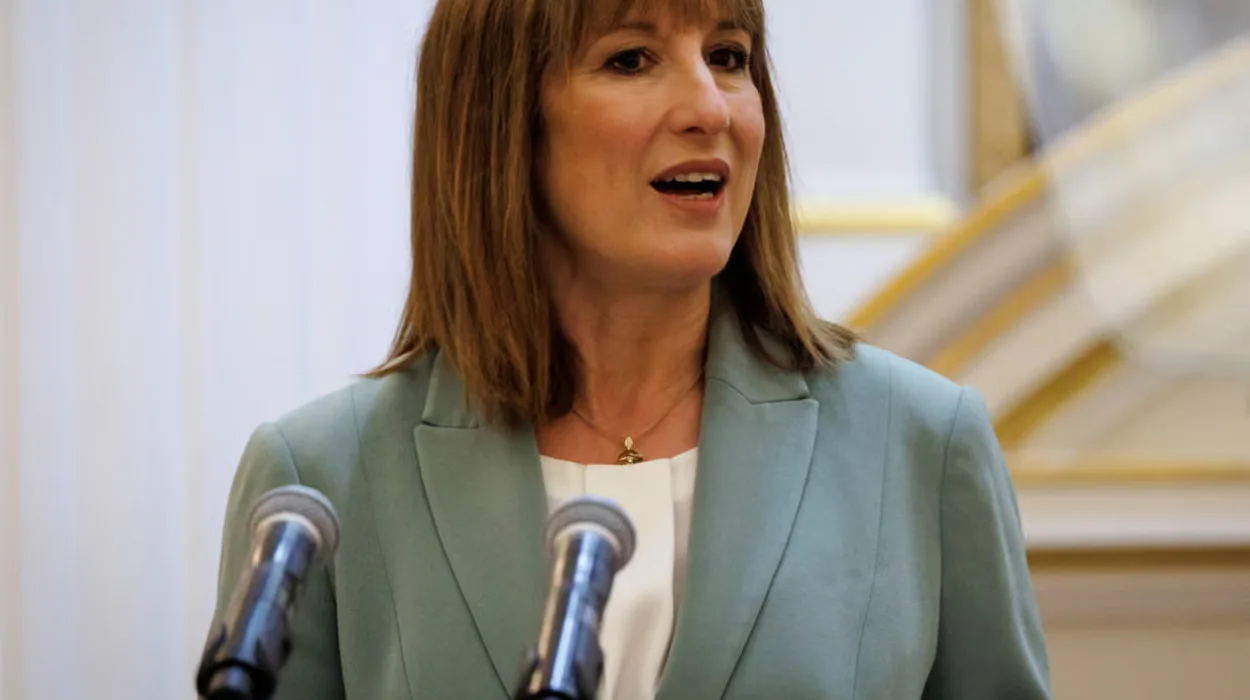UK (Parliament Politics Magazine) – UK borrowing surged to £20.7bn in June, exceeding forecasts and raising pressure on Rachel Reeves as tax hikes loom ahead of the autumn budget.
As reported by The Guardian, Chancellor Rachel Reeves faced renewed financial pressure after Britain’s borrowing in June rose beyond estimates.
ONS’s views on the £20.7bn borrowing surge
The Office for National Statistics reported a rise in UK borrowing, reaching £20.7bn in June. It was the second-highest June figure since 1993 and well above the £16.5bn forecast by City economists.
The ONS said soaring public service spending and rising debt payments outpaced income from tax and national insurance.
According to official data, debt interest rose by £8.4 billion to £16.4 billion in June, driven by rising inflation and the cost of index-linked gilts.
The rise comes as Ms Reeves prepares for a difficult autumn budget, with speculation growing that tax increases may be needed to cover a major financial gap caused by a recent welfare U-turn.
The Treasury borrowed £3.5bn more than the £17.1bn forecast by the Office for Budget Responsibility, with borrowing also £6.6bn higher than last June.
The Institute for Fiscal Studies argued that Ms Reeves should revisit the fiscal rule that aims to balance everyday spending with income by the fifth year of projections.
The British economy shrank in April and May, while unemployment and inflation rose. Many businesses face higher interest rates and increased borrowing costs.
What did Richard Heys say about the rise in June borrowing?
ONS acting chief economist Richard Heys stated,
“The rising costs of providing public services and a large rise this month in the interest payable on index-linked gilts pushed up overall spending more than the increases in income from taxes and National Insurance contributions, causing borrowing to rise in June.”
Rachel Reeves’s views on her fiscal rules
Rachel Reeves insists she will stay committed to her fiscal rules. She has ruled out revisiting departmental budgets, making tax rises her likely route to balance the public finances.
Ms Reeves faces pressure from backbenchers to introduce a wealth tax, while Angela Rayner is pushing for councils to be given new powers to tax tourists.
What did Darren Jones say about borrowing and fiscal rules?
Darren Jones, the Chief Secretary to the Treasury, stated,
“We are committed to tough fiscal rules, so we do not borrow for day-to-day spending and get debt down as a share of our economy.”
He added,
“This commitment to economic stability means we can get on with investing in Britain’s renewal, including fixing our NHS, strengthening our national defence and building hundreds of thousands of affordable homes through our Plan for Change.”
What did Mel Stride say about Rachel Reeves’ spending plans?
Mel Stride, the shadow chancellor, stated,
“Rachel Reeves is spending money she doesn’t have. Debt interest already costs taxpayers £100bn a year – almost double the defence budget – and it’s forecast to rise to £130bn on Labour’s watch.”
He said,
“Labour’s jobs tax and reckless borrowing is killing growth and fuelling inflation – paving the way for more tax hikes and more borrowing in the autumn. Make no mistake – working families will pay the price for Labour’s failure and costly U-turns.”
Mr Stride added,
“Only the Conservatives, under new leadership, will break this cycle. Only the Conservatives believe in sound money and low taxes.”
What did Andrew Griffith say about the Chancellor’s handling of borrowing?
Shadow business secretary Andrew Griffith said,
“This level of borrowing is not remotely ‘unexpected’ given the out of her depth Chancellor.”
He added,
“She is no more capable of balancing her books than a first-year undergrad in freshers week.”
What did Dennis Tatarkov say about the rise in borrowing?
Dennis Tatarkov, an economist at KPMG UK, warned that increasing borrowing is placing more pressure on public finances.
He stated,
“Higher than expected interest payments as well as weaker revenues have pushed borrowing above the OBR’s projection for the second month in a row.”
Mr Tatarkov said,
“Furthermore, the longer-term outlook for public finances remains difficult. Recent U-turns on welfare and persistent growth headwinds could open a gap against fiscal targets, which could require further tax rises or spending cuts in the autumn Budget.”
He added,
“To the extent that ongoing deficits point to lingering budgetary pressures, we would expect the OBR to acknowledge these at the next fiscal event.”
Borrowing costs and debt interest
- Borrowing costs refer to the interest rate governments pay to borrow money (e.g., via bonds/gilts). It is influenced by market confidence, inflation, and central bank policies.
- Debt interest means the actual cash paid by the government to service its debt. It rises when borrowing costs increase (e.g., UK paid £16.4bn in June 2025).


